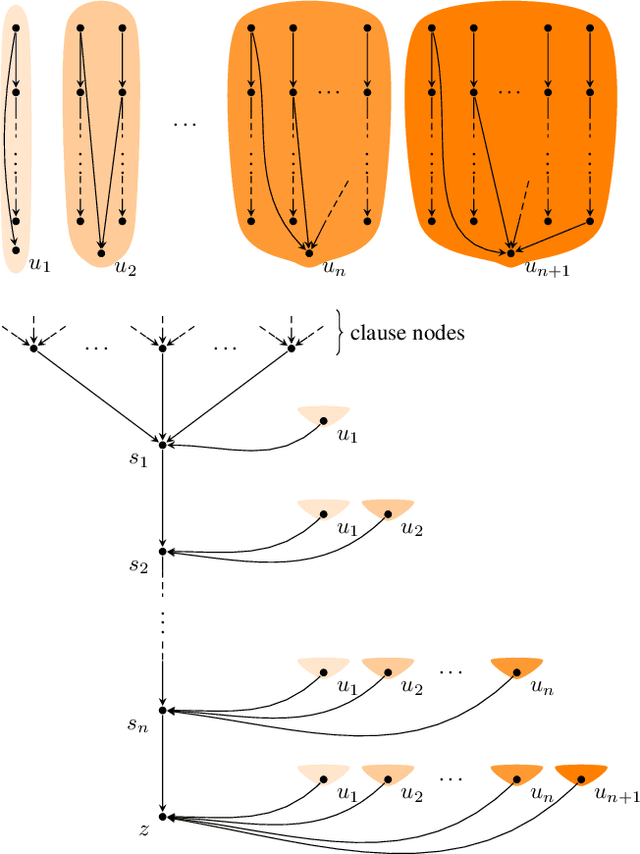Thekla Hamm
A Structural Complexity Analysis of Synchronous Dynamical Systems
Dec 12, 2023

Abstract:Synchronous dynamic systems are well-established models that have been used to capture a range of phenomena in networks, including opinion diffusion, spread of disease and product adoption. We study the three most notable problems in synchronous dynamic systems: whether the system will transition to a target configuration from a starting configuration, whether the system will reach convergence from a starting configuration, and whether the system is guaranteed to converge from every possible starting configuration. While all three problems were known to be intractable in the classical sense, we initiate the study of their exact boundaries of tractability from the perspective of structural parameters of the network by making use of the more fine-grained parameterized complexity paradigm. As our first result, we consider treewidth - as the most prominent and ubiquitous structural parameter - and show that all three problems remain intractable even on instances of constant treewidth. We complement this negative finding with fixed-parameter algorithms for the former two problems parameterized by treedepth, a well-studied restriction of treewidth. While it is possible to rule out a similar algorithm for convergence guarantee under treedepth, we conclude with a fixed-parameter algorithm for this last problem when parameterized by treedepth and the maximum in-degree.
The Complexity of Envy-Free Graph Cutting
Dec 12, 2023Abstract:We consider the problem of fairly dividing a set of heterogeneous divisible resources among agents with different preferences. We focus on the setting where the resources correspond to the edges of a connected graph, every agent must be assigned a connected piece of this graph, and the fairness notion considered is the classical envy freeness. The problem is NP-complete, and we analyze its complexity with respect to two natural complexity measures: the number of agents and the number of edges in the graph. While the problem remains NP-hard even for instances with 2 agents, we provide a dichotomy characterizing the complexity of the problem when the number of agents is constant based on structural properties of the graph. For the latter case, we design a polynomial-time algorithm when the graph has a constant number of edges.
 Add to Chrome
Add to Chrome Add to Firefox
Add to Firefox Add to Edge
Add to Edge